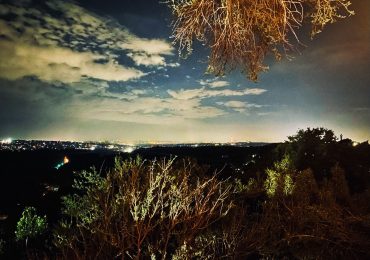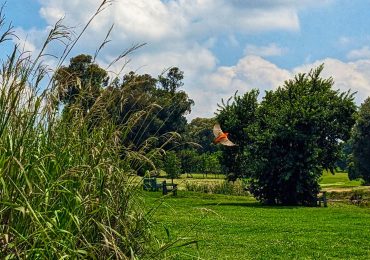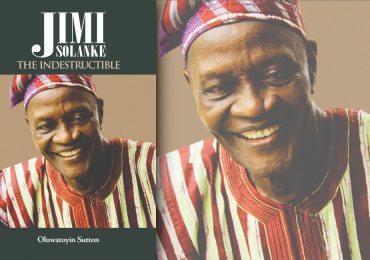This December marked the The JRB’s thirty-second issue, the final issue of our third volume. With the new year—but not necessarily the new decade, harrumph—just around the corner, it seems fitting to share the ten articles that generated the most excitement this year.
Without further ado, then, here is The JRB’s Top 10 most read articles of 2019—a year marked by the sad loss of many literary greats.
The JRB Top 10 of 2019
10. Toni Morrison, 1931—2019, RIP
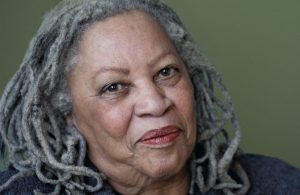
Toni Morrison, celebrated novelist and Nobel Laureate, died on 5 August, aged eighty-eight.
Morrison passed away at the Montefiore Medical Center in New York.
Morrison’s family issued a statement through the publisher, saying she died after a brief illness.
‘Toni Morrison passed away peacefully last night surrounded by family and friends,’ the family announced. ‘She was an extremely devoted mother, grandmother, and aunt who revelled in being with her family and friends. The consummate writer who treasured the written word, whether her own, her students or others, she read voraciously and was most at home when writing.’
9. ‘There is no comfort to be had in fiction. Our history is too raw for that’—Jacob Dlamini reviews Barry Gilder’s ‘brilliant, haunting’ novel The List
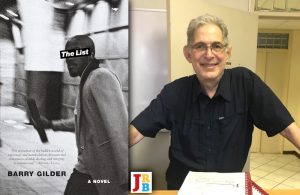
‘Does it matter now?’ asks the character S’bu Dlamini in Barry Gilder’s wistful novel The List. Does it matter whether S’bu trusts his uncle William Dlamini, an apartheid agent who used his position as headmaster of a Lowveld school to spot black talent for the Security Police and the National Intelligence Service? Does it matter that the uncle took advantage of his position as an authority figure to recruit his best students to spy on the ANC for the apartheid state?
8. This is how we lost him—Bongani Madondo and Rofhiwa Maneta remember K Sello Duiker
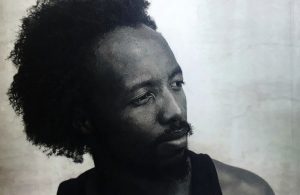
The JRB: What do you remember most about Kabelo?
Bongani Madondo: His silence and madness—meaning his beautiful eccentricity, singularity even. I remember his laughter and how we finished each other’s sentences. He was my doppelganger (although he was five years younger than me). He was a reader. He got me into Ben Okri and I got him into African spirituality and magical realism.
He was always stronger than me and assured me that we would become major writers and make films. He loved his aunt with whom he lived in Berea. He worked on large chunks of The Quiet Violence of Dreams at his aunt’s place, as well as at my apartment, 20 Olympia Mansions on Yeo Street, Y’ville. I had the fool’s fortune of reading it as a work-in-progress, which is rare because writers, at least this writer, are not in the habit of sharing their works before they’re done. To this day I cannot bring myself to read it as a finished book, if you know what I mean.
7. [Fiction Issue] ‘Mad About the Boy’, a new short story by Zanta Nkumane
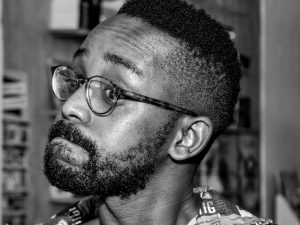
He comes to me one night, draped in his glowing skin, resolute eyes and imposing voice. Come home with me? he asks, after spending the night wooing me, his largeness sequestering us in the corner of the bar for countless hours. He is beautiful. It’s always the beautiful ones. They are the ones that peel us away from the humdrum of our safe lives and reintroduce us to the risky, smouldering parts of ourselves we have cremated. Without thinking about it too long, I say Yes. I say yes because the loneliness tells me to. I say yes because I have recently been left and had to leave my home because he found someone whose hands touch him more thoughtfully. I say yes because we all promise to try new things after leaving. I say yes because a beautiful boy thinks me worthy to take home. I say yes because he says I am unlike other boys. I clasp my hand to his and allow him to lead me, wherever. I notice his desperate, choking grasp, as if he believes I will change my mind and run back to my friends.
6. Hugh Lewin, 1939–2019, RIP
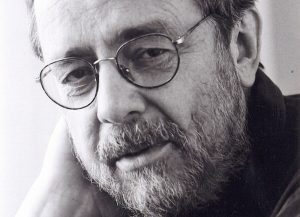
Journalist, author and anti-apartheid activist Hugh Lewin died on 16 January, aged seventy-nine.
In July 1964, when he was twenty-four years old, Lewin was sentenced to seven years in prison for his activities in the African Resistance Movement. During his years in prison, Lewin secretly recorded his experiences and those of his fellow inmates in the pages of his Bible, and on his release these writings were published in London in 1974 as Bandiet: Seven Years in a South African Prison. Hailed as a classic of prison writing, the book remained banned in South Africa for many years, until it was published by David Philip in 1989.
5. Dry like steel: A wrecking ball of a book—Wamuwi Mbao reviews Adam Habib’s Rebels and Rage: Reflecting on #FeesMustFall
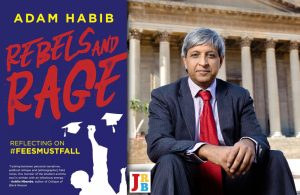
The work of mythology is to guard against things being forgotten. What is thought to be in danger of slipping from view must be inscribed. Mythology does not deal with what is true and what is false: it deals with what is important. In this regard, it does the heavy lifting for inchoate things like feeling and sentiment. It preserves. But preserved things are not the same as their originals. A pickled olive is not an olive growing on the branch.
4. Sandile Dikeni, 1966–2019, RIP
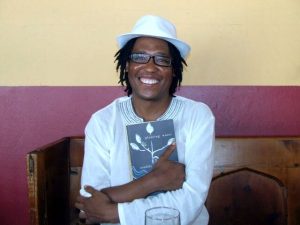
Poet and activist Sandile Dikeni died in Cape Town on 9 November.
Dikeni was the author of three collections of poems, including the seminal Guava Juice, (Mayibuye Books, 1992), which he followed with Telegraph to the Sky (UKZN Press, 2001) and Planting Water (UKZN Press, 2007). He also published a collection of his articles from the Cape Times, Soul Fire: Writing the Transition (UKZN Press, 2002).
3. [The JRB exclusive] Read ‘Mothers and Men’, OluTimehin Adegbeye’s Gerald Kraak Prize-winning essay, a sensitive chronicle of rape, secondary victimisation and motherhood
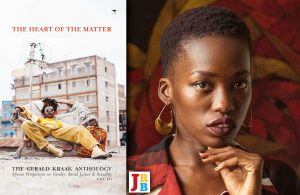
The JRB presents this year’s Gerald Kraak Prize-winning essay. The prize honours African writing and photography that ‘provokes thought on the topics of gender, social justice and sexuality’.
The judges: ‘were taken by the fierce intensity of “Mothers and Men”, a meditation on the bonds between mothers and daughters. The essay explores the fragility of healing with a rare sensitivity and insight. OluTimehin Adegbeye’s voice walks the fine line between heartbreak and redemption, casting new light on questions of rape and secondary victimisation in ways that are new and important. Adegbeye is an urgent and timely voice and both her substantive interests and her prose and befitting of a prize that exists to champion human rights and complicate the framing of what it means to be African today.’
Read the essay:
Mothers and Men
Waking up the day after my mother’s death, I recognised the dazed confusion I was feeling as a throwback: On a humid morning five years prior, I had gone to school in a body that had been recently broken into, and everyone had seemed so … normal.
Keep reading at the link above.
2. ‘I will always love Africa, because from the minute I arrived it treated me like a white girl.’—Author Adam Smyer reflects on his visit to the Open Book Festival
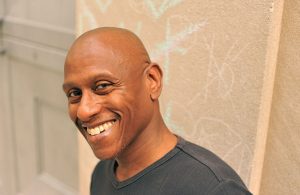
I’ve never been anywhere. Half my life ago I relocated from one coast of the United States to the other, but that’s it. And that’s fine. I have no interest in spending my vacation days sampling the nuances of anti-blackness around the globe. There’s enough on my plate here in the US. And my lifelong Emergency Overseas Survival Plan of yelling ‘I’m an American!’ until someone whisks me to safety has been dubious for a while now. Yeah, no. My home is the devil I know. Even in my novel Knucklehead I described a certain film as ‘a tribulation, a rite of passage, kind of like I imagine my first trip to Africa will be’. That pilgrimage has always seemed doomed to fail.
1. Binyavanga Wainaina, 1971–2019, RIP
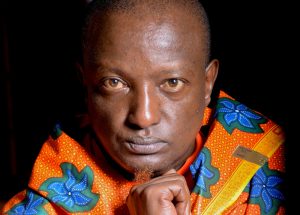
Kenyan author and activist Binyavanga Wainaina died on 21 May, at the age of forty-eight.
Wainaina was born in Nakuru, Kenya, in 1971, and studied commerce at the University of Transkei in South Africa from 1991. He moved to Cape Town in 1996, where he worked as a travel and food writer and professional cook. In 2002, he won the Caine Prize for African Writing, for his short story ‘Discovering Home’.
Wainaina was the founding editor of Kwani?, a journal of experimental writing, which he established in 2003, and which became an important and vital source for new African writing. He completed an MPhil in Creative Writing at the University of East Anglia in 2010. In 2012, his satirical essay ‘How to Write About Africa’, published in Granta magazine, attracted wide attention, and in 2012 he published a memoir, One Day I Will Write About This Place, to great acclaim.

